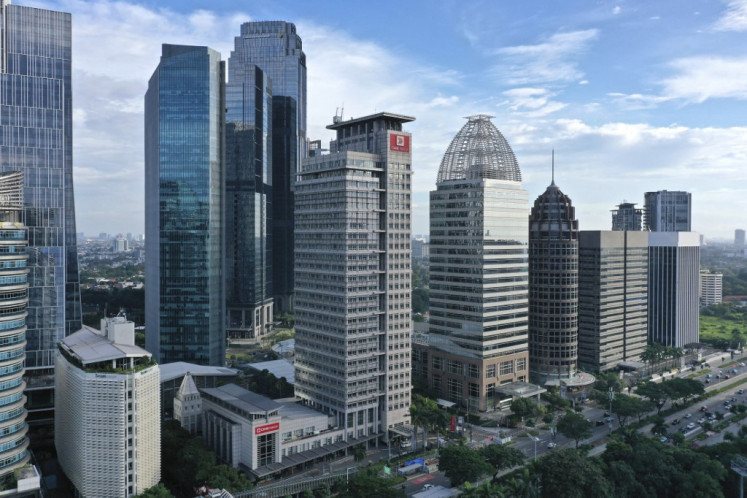Popular Reads
Top Results
Can't find what you're looking for?
View all search resultsPopular Reads
Top Results
Can't find what you're looking for?
View all search resultsJakartans become used to terrible water management: Researcher
Despite the ever-worse flooding that afflicts the city during the rainy season, most Jakartans still largely ignore the problem, while some have actually adapted to the situation
Change text size
Gift Premium Articles
to Anyone
D
espite the ever-worse flooding that afflicts the city during the rainy season, most Jakartans still largely ignore the problem, while some have actually adapted to the situation.
According to Singaporean architect Kian Goh, many city residents have become so accustomed to flooding that they do not feel threatened by it.
'In Jakarta, many people have become used to flooding and rain. They've become used to the terrible water management in the city. Therefore they don't feel the urgency to fix anything,' she said recently.
Goh who is conducting an in-depth study to prepare her PhD dissertation at the Massachusetts Institute of Technology (MIT), has compared Jakarta to New York and Rotterdam based on the respective cities' water management and their administrations' and residents' responses to flooding.
'The difference between Jakarta, and both New York and Rotterdam is that Jakarta does not feel as threatened as the latter cities,' she said.
While New York and Rotterdam scramble to find designs to develop their cities, Jakarta still has a difficult time in relocating riverbank squatters.
'When it floods, most Jakarta residents just wait for it to recede,' Goh said.
For example, residents who live on the banks of the Ciliwung River in Kampung Pulo in East Jakarta have repeatedly refused to be relocated to low-cost apartments even though their homes are increasingly prone to flooding.
They admitted that their homes were frequently inundated up to three times a week but rejected relocation as they were used to it.
Goh said that New York, on the other hand, had responded better and faster to flooding compared to Jakarta while Rotterdam, a city more than half of which is 7 meters below sea level, had designed a flood-proof city.
'New York experienced Hurricane Sandy, which caused losses of up to US$18 billion. That was probably the first time the city experienced such a huge natural disaster,' Goh said.
However, she continued, New York picked itself up quickly.
Goh cited the New York municipal administration's efforts to rebuild and redesign the city to better cope with flooding.
'In June 2013, the U.S. Department of Housing and Urban Development and the Presidential Hurricane Sandy Rebuilding Task Force initiated the Rebuild by Design competition,' she said.
The competition was aimed at obtaining architectural plans to develop innovative and viable proposals to promote resilience in the Sandy-affected region.
'Hurricane Sandy was a traumatic experience for New York. They felt the threat therefore the city quickly developed the Rebuild by Design initiative,' Goh said.
Meanwhile, she said, Rotterdam was a city that kept changing its design to withstand flooding.
'Most of Rotterdam is 7 meters below sea level. They constantly feel under threat because they're prone to flooding. In order to cope with that threat, Rotterdam has built infrastructure to withstand flooding and any other form of climate change,' Goh said.
For example, she said, Rotterdam developed the Deltawerken ' or Delta Works ' after the 1953 North Sea flood. The Deltawerken, which took more than four decades to complete, consists of dams, sluices, and storm surges, among other features. (dwa)










